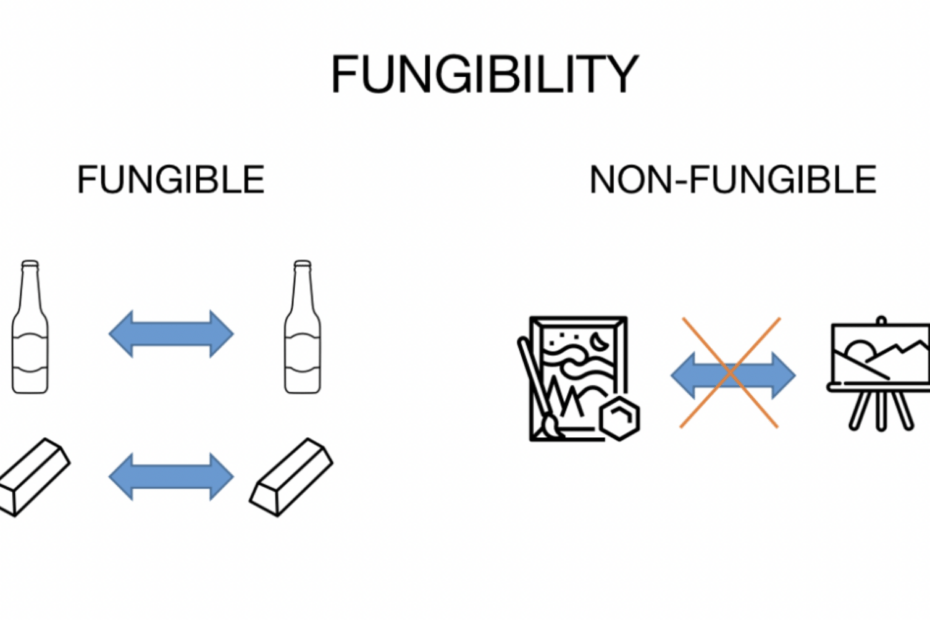How to make a NFT business?
The term NFTs stand for “non-fungible tokens”, these type of token represent ownership of digitally scarce goods such as pieces of art or collectibles. Fungibility is the feature to be replaceable by another identical item, mutually interchangeable.
NFTs are not interchangeable or divisible, they are issued on a blockchain and are used to designate ownership of a certain asset, cryptographically associated with the owner.
Blockchain traceability and programmability make NFTs able to revolutionize the way in which creators, artists and brands are getting paid and how fan are getting engaged.
To leverage NFTs potential in your own business it is important to design a good tokenomics and follow some key steps in decision making process.
How to create a successful NFT?
What are the aspects to consider in designing a NFT business tokenomics? Below there is a simplified checklist that summarizes key steps to prepare your business to access and integrate NFTs.
1. Identify the NFTs use cases
How do you plan to use the NFTs? Depending on the use case, there are different technologies, platforms and mechanisms to design an NFT. The main uses cases are:
Fan engagement:
- Ticketing: NFTs may be used as a entry ticket for event, community initiatives or DeFi pools
- Loyalty: NFTs can be used as loyalty rewards to incentivize a certain behaviour.
- Fan governance: NFTs can give voting rights to the community.
- Enhanced utility in the metaverse: virtual worlds can leverage NFTs to enhanced utility and rewards for users.
Additional revenue streams:
- Royalties: smart contracts allow programming the NFT to pay future royalties to the NFT creators every time the token is sold.
- Secondary market: having real ownership of in-game items revolutionize the gaming industry by allowing an independent secondary market and/or NFTs based reward mechanisms. There are some really successful cases like Axie Infinity.
Customer relationship management:
NFTs traceability open the open doors to better customer segmentation and more tailored customer engagement. To understand customer habits and loyalty levels can now be used new variables, such as: types of NFTs owned by the wallet, quantity, duration.
DeFi collateralization:
NFTs can be used as collateralized loans. Borrowers can offer up NFTs as collateral and lenders can choose which NFT they are willing to accept before initializing a loan. The NFT is used as collateral and if the borrower defaults on their loan, the NFT is transferred to the lender.
2. Select the Blockchain and NFT Standard
Ethereum is the blockchain with the most NFT activity, but other blockchain are gaining traction with NFTs. There is a trade-off between the different technologies available. Some variables to be considered in evaluating different blockchaints are:
- Scalability and cost: NFT-based transactions need cost-effective solutions because they could include many micro-transactions, involving in-game digital assets, digital collectibles, card games, and so on.
- Smart contracts security: they must be subject to rigorous testing.
- NFT standard: non fungible only (e.g. ERC-720) v.s. dual purpose (e.g. ERC-1155)
3. Mint the NFTs
To mint an NFT, it is important to select a minting platform that gives flexibility and control over the features of the NFT. Once the NFT is minted on the blockchain, it is most likely impossible to transfer or sell them on other blockchains.
4. Store the NFTs
Storing the NFT means store the NFT file (e.g.,the digital artwork). The main alternatives are:
- Blockchain storage: ideally it is the best solution, but blockchains were not made to store large files due to high required cost.
- Centralized storage: the URL of the digital file associated to the NFT is stored in a centralized place (e.g. server, cloud). If the NFT creator stops hosting that file, the NFT would point to nothing.
- Decentralized storage: storage files are spread across a distributed network (e.g. IPFS); there is no dependence on a single entity.
5. Distribute across marketplace
The NFT marketplace is an online service for the trading of NFTs. It is comparable to an e-commerce website where you can use digital wallets to buy items. Marketplaces may use different blockchains, have different integrations with exchanges and be specialized in different kinds of assets.
Below some variables to be considered in choosing a marketplace:
- Category: e.g. music, art, gaming.
- Payments method: e.g. Credit card, Debit card, Cryptocurrency, Bank transfer.
- Services included: e.g. buy, sell, mint, stake.
- Blockchain: e.g. Ethereum, Binance Smart Chain, Enjin, Flow.
Risks
There are some additional aspects that could be relevant to take in consideration before starting an NFT business:
- Risk management: volatility risks, fraud risks, security risks.
- Licensing and T&Cs: make sure there’s regulatory and legal clarity in your NFT sale/purchase. You may need to abide by whatever is the T&Cs of the marketplace that you are using.
- Regulatory framework: different countries have different copyright laws.
Conclusion
NFTs could revolutionize the way in which creators are getting paid and how fan are getting engaged.
The NFTs applications are pervasive to many industries and depending on the use case, there are different technologies, platforms, and mechanisms to design an NFTs tokenomics.
Additional risks must be taken into account before starting an NFTs business, especially as regard the local regulatory framework. Are you looking for professional tokenomics consulting? Take a look at the offer!
